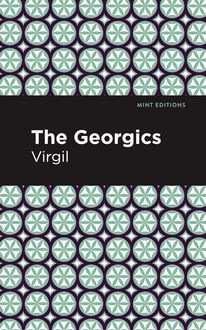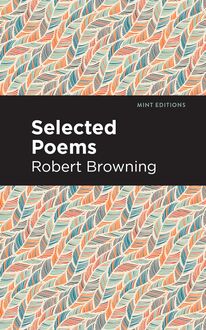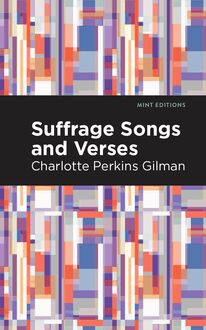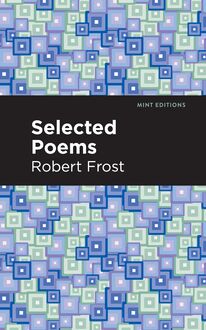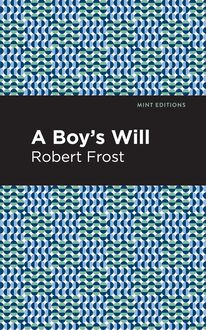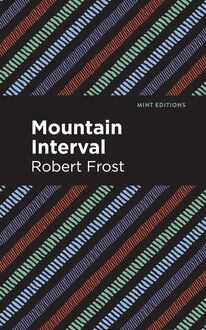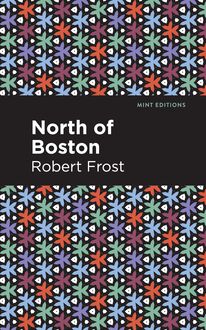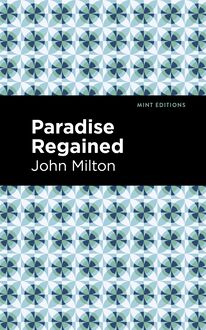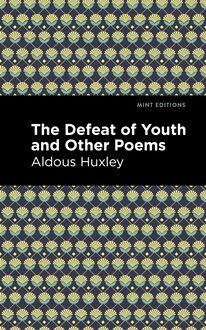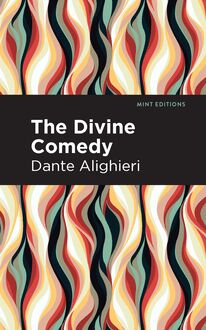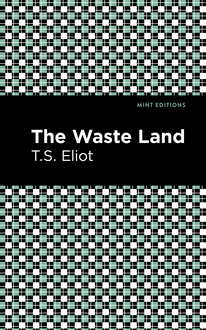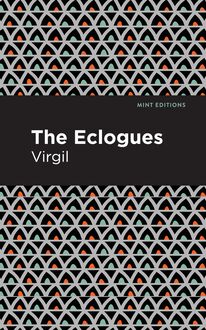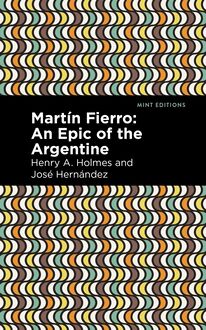-
 Univers
Univers
-
 Ebooks
Ebooks
-
 Livres audio
Livres audio
-
 Presse
Presse
-
 Podcasts
Podcasts
-
 BD
BD
-
 Documents
Documents
-
- Cours
- Révisions
- Ressources pédagogiques
- Sciences de l’éducation
- Manuels scolaires
- Langues
- Travaux de classe
- Annales de BEP
- Etudes supérieures
- Maternelle et primaire
- Fiches de lecture
- Orientation scolaire
- Méthodologie
- Corrigés de devoir
- Annales d’examens et concours
- Annales du bac
- Annales du brevet
- Rapports de stage
La lecture à portée de main
Vous pourrez modifier la taille du texte de cet ouvrage
Découvre YouScribe en t'inscrivant gratuitement
Je m'inscrisDécouvre YouScribe en t'inscrivant gratuitement
Je m'inscrisEn savoir plus
Vous pourrez modifier la taille du texte de cet ouvrage
En savoir plus

Description
Azul… (1888) is a book of stories and poems by Rubén Darío. Written while the poet was living in Chile, Azul… has been recognized as a pioneering work of Hispanic Modernism that launched the career of a leading Latin American poet. Both experimental and traditional, Azul… blends Darío’s concern over the sustainability of modern life with his abiding interest in the myths and magic of ancient cultures.
Infused with classical symbolism, inspired by the myth and philosophy of Ancient Greece, Rubén Darío’s Azul… bridges the gap between ancient and modern. Rather than focus on the differences between the two, he envisions the past as a living entity, allowing history and fantasy to coincide with the social realities of his time. In these poems and stories, fairies from the plays of Shakespeare appear alongside the working men and women of Latin America. Dreams coincide with a reality mired in poverty, labor, and passionless social climbing. Poets and port workers sing and die in a city of ghostly beauty. Azul… is less a book than it is an experience, and nearly a century and a half after its publication it remains one worth the taking.
With a beautifully designed cover and professionally typeset manuscript, this edition of Rubén Darío’s Azul… is a classic of Nicaraguan literature reimagined for modern readers.
Sujets
Informations
| Publié par | Mint Editions |
| Date de parution | 24 mars 2021 |
| Nombre de lectures | 0 |
| EAN13 | 9781513287584 |
| Langue | English |
| Poids de l'ouvrage | 1 Mo |
Informations légales : prix de location à la page 0,0350€. Cette information est donnée uniquement à titre indicatif conformément à la législation en vigueur.
Extrait
Azul…
Rubén Darío
Azul… was first published in 1888.
This edition published by Mint Editions 2021.
ISBN 9781513282565 | E-ISBN 9781513287584
Published by Mint Editions®
minteditionbooks .com
Publishing Director: Jennifer Newens
Design & Production: Rachel Lopez Metzger
Project Manager: Micaela Clark
Typesetting: Westchester Publishing Services
C ONTENTS T O M R. R UBÉN D ARÍO T HE B OURGEOIS K ING T HE D EAF S ATYER T HE N YMPH T HE B ARDO T HE V EIL OF THE Q UEEN M AB T HE S ONG OF G OLD T HE R UBI T HE P ALACE OF THE S UN T HE B LUE B IRD W HITE D OVES AND B ROWN H ERONS I N C HILE I. I N S EARCH OF P ICTURES II. W ATERCOLOR III. L ANDSCAPE IV. S TRONG W ATER V. T HE V IRGIN OF THE P ALOMA VI. S AW H EAD VII. W ATERCOLOR VIII. A P ORTRAIT OF W ATEU IX. S TILL L IFE X. C HARCOAL XI. L ANDSCAPE XII. T HE I DEAL T HE D EATH OF THE E MPEROR OF C HINA T O A S TAR T HE L YRIC Y EAR S PRING S UMMER A UTUMNAL W INTRY A UTUMN T HOUGHTS T O A P OET A NAGKE S ONNETS C AUPOLICAN V ENUS O F W INTER M EDALLIONS I. L ECONTE DE L ISLE II. C ATULLE M ENDES III. W ALT W HITMAN IV. JJ P ALMA V. S ALVADOR D ÍAZ M IRON
T O M R. R UBÉN D ARÍO
Madrid, October 22, 1888
I
E VERY BOOK THAT COMES TO my hands from America excites my interest and arouse my curiosity; but no one until today has awakened her so live like yours, as soon as I started reading it.
I confess that at first, despite the kind dedication with which you send me a copy, I looked at the book with indifference… almost with detour. The title Azul… was to blame.
Victor Hugo says: L’art c’est l’azur ; but I am not satisfied or I resign that such a saying is very deep and beautiful For me, so much that is to say that art is blue, how to say that it is green, yellow or red. Why, in this case, the blue (although in French not bleu , but azur , which is more poetic) it must be a figure, a symbol and superior predicament that encompasses the ideal, the ethereal, the infinite, the serenity of the cloudless sky, the diffuse light, the vague and limits, where are the stars born, live, shine and move? But although all this and more arise from the depths of our being and appear in the eyes of the spirit, evoked by the word azul , what is new in saying that art is all this? The same is to say that art is an imitation of Nature, as Aristotle defined it: the perception of everything existing and as much as possible, and its reappearance or representation by the man in signs, letters, sounds, colors or lines. In short: I, for more laps that I give, I do not see in that art is blue but an emphatic and empty phrase.
Be it, however, the art blue , or whatever color you want. Whatever well, color is the least important thing. What gave me a bad feeling was the phrase of Victor Hugo, and the one that you would have given his title book the fundamental word of the phrase. Is this, I said to myself, one of as many and as many as everywhere, and especially in Portugal and the Spanish America, have you been infected by Victor Hugo? The mania of imitating him has done real havoc, because the daring youth exaggerates his defects, and because what is called genio , and what makes defects are forgiven and perhaps applauded, not imitated when not have. In resolution I suspected that you were a Victor Huguito and I did not read your book for more than a week.
As soon as I have read it, I have formed a very different concept. You with a great background of originality and very strange originality. If he book, printed in Valpara í so this year 1888, was not in very good Castilian, the same could be of a French author, that of an Italian, than a Turk or a Greek. The book is permeated with spirit cosmopolitan. Up to the name and surname of the author, true or distorted and feigned, they make cosmopolitanism stand out more. Ruben He is Jewish, and Persian is Darius; so that from the names it doesn’t seem rather, you want to be or are from all countries, castes and tribes.
The Blue… book is not really a book; is a leaflet of 132 pages; but so full of things and written in such a concise style, that It gives a lot to think about and has a lot to read. I certainly know knows that the author is very young: that he cannot be more than twenty-five years, but he has used them wonderfully. Has learned a lot, and in everything he knows and expresses shows singular talent artistic and poetic.
Know the ancient Greek literature with love; knows everything modern European. It can be seen, although he does not show it off, that he has the concept the visible world and the human spirit, as this concept has come to be formed by the set of observations, experiences, more recent hypotheses and theories. And it is also seen that all this has penetrated into the mind of the author, I will not say exclusively, but yes mainly through French books. What’s more: in the profiles, in the refinements, in the delicacies of thinking and feeling of the author there is so much French, that I forged a story at my whim to explain it to me. I assumed that the author, born in Nicaragua, had gone to Paris to study for a doctor or an engineer, or for another profession; who had lived in Paris for six or seven years, with artists, literati, wise men and happy women over there; and that much of what you know had learned from the voice, and empirically, with the treatment and touch of those people. It seemed impossible to me that in such a way impregnated the author with the newest Parisian spirit without having lived in Paris for years.
It was extraordinary my surprise when I learned that you, according to me well-informed subjects assure, he has not left Nicaragua but to go to Chile where he has lived for at most two years. How, without the influence of the environment, have you been able to assimilate all elements of the French spirit, while preserving the Spanish form that unites and organizes these elements, turning them into substance own?
I don’t think there has ever been a similar case with any Spaniard peninsular. We all have a background of Spanishism that nobody takes away nor to twenty-five pulls. In the famous Abbe Marchena, with having Residing so long in France, Spanish is seen; in Cienfuegos is I falsify the cloying sentimentality a la Rousseau, and the Spaniard is low. Burgos and Reinoso are French and not French. Culture France, good or bad, never goes beyond the surface. It is not more than a transparent varnish, behind which the condition is discovered Spanish.
None of the men of letters of the Peninsula, that I have known, with a more cosmopolitan spirit, and who have long lived in France and who have spoken better French and other foreign languages, I have never seemed so imbued with the spirit of France as you It seems to me: neither Galiano, nor Don Eugenio de Ochoa, nor Miguel de los Santos Alvarez. In Galiano he speaks as a mixture of Anglicism and Philosophism French of the last century; but all superimposed and not combined with the be of his spirit, which was authentic. Ochoa was and always remained archi and ultra-Spanish, despite their enthusiasm for the things of France. And in Alvarez, in whose mind the ideas of our century boil, and who has lived for years in Paris, the being of the man of Castilla, and in his prose the reader recalls Cervantes and Quevedo, and in his verses to Garcilaso and Le ó n, although both in verses and in prose, he always emits ideas more typical of our century than of those passed. His joke is not the French esprit , but the Spanish humor of picaresque novels and comic authors of our peculiar literature.
I see, then, that there is no author in Castilian more French than you, and I say to affirm a fact without praise and without censorship. In any case, more well I say it as a compliment. I don’t want the authors to not have national character; but I cannot demand of you that it be Nicaraguan, because neither there is nor can there still be literary history, school and literary traditions in Nicaragua. Nor can I demand of you that is literary Spanish, since it is no longer so politically, further separated from the motherland by the Atlantic, and further in the republic where he was born, of the Spanish influence than in other Spanish American republics. The Gallicism of the mind, it is strength to give you praise lavishly for the perfect and deep of that Gallicism; because the language persists Spanish, legitimate and of good law, and because if you do not have a national character, you have individual character.
In my mind there is a powerful individuality of a writer in you, well marked, and that, if God gives you the health that I wish you and long life, has to develop and become more marked over time in works that be the glory of the Latin American letters.
After reading the 132 pages of Azul… the first thing you notice is that it is you saturated with all the newest French literature: Hugo, Lamartine, Musset, Baudelaire, Leconte de Lisle, Gautier, Bourget, Sully-Prouhomme, Daudet, Zola, Barbey d’Aurevilly, Catulle Mendes, Rollinat, Goncourt, Flaubert, and all the other poets and novelists have been well studied and better understood by you. And you don’t imitate none: you are neither romantic, nor naturalistic, nor neurotic , nor decadent, not symbolic, not Parnassian. You have mixed it all up: you have put to cook in the alembic of his brain, and has produced a rare fifth essence.
The result is a Nicaraguan author, who never left Nicaragua but to go to Chile, and that he is an author so fashionable in Paris and with so much chic and distinction, which is ahead of fashion and could modify it and impose it.
In the book there are Prose Tales and six compositions in verse. In the stories and poetry everything is chiseled, chiseled, made so that last, neatly and carefully, as Flaubert might have done, or the more dapper Parnassian. And yet you don’t notice the effort, nor the file work, nor the fatigue of rummaging: everything seem
-
 Univers
Univers
-
 Ebooks
Ebooks
-
 Livres audio
Livres audio
-
 Presse
Presse
-
 Podcasts
Podcasts
-
 BD
BD
-
 Documents
Documents
-
Jeunesse
-
Littérature
-
Ressources professionnelles
-
Santé et bien-être
-
Savoirs
-
Education
-
Loisirs et hobbies
-
Art, musique et cinéma
-
Actualité et débat de société
-
Jeunesse
-
Littérature
-
Ressources professionnelles
-
Santé et bien-être
-
Savoirs
-
Education
-
Loisirs et hobbies
-
Art, musique et cinéma
-
Actualité et débat de société
-
Actualités
-
Lifestyle
-
Presse jeunesse
-
Presse professionnelle
-
Pratique
-
Presse sportive
-
Presse internationale
-
Culture & Médias
-
Action et Aventures
-
Science-fiction et Fantasy
-
Société
-
Jeunesse
-
Littérature
-
Ressources professionnelles
-
Santé et bien-être
-
Savoirs
-
Education
-
Loisirs et hobbies
-
Art, musique et cinéma
-
Actualité et débat de société
- Cours
- Révisions
- Ressources pédagogiques
- Sciences de l’éducation
- Manuels scolaires
- Langues
- Travaux de classe
- Annales de BEP
- Etudes supérieures
- Maternelle et primaire
- Fiches de lecture
- Orientation scolaire
- Méthodologie
- Corrigés de devoir
- Annales d’examens et concours
- Annales du bac
- Annales du brevet
- Rapports de stage
